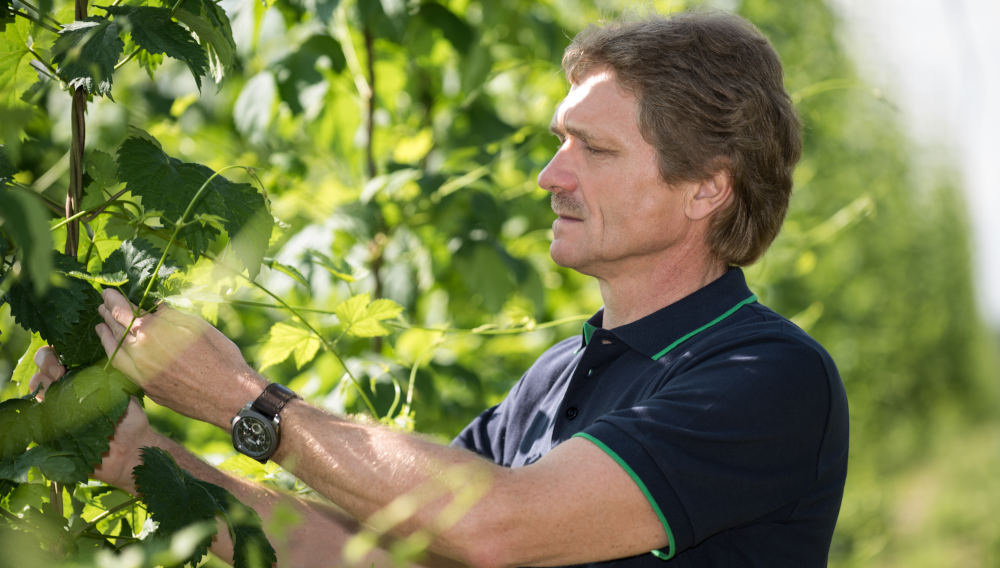Barth Haas plant protection expert speaking at WTO session
Unrestricted hop trade | Plant protection regulations must be harmonized internationally if global trade in foods and their ingredients is to function smoothly. This was the demand made by Dr. Reinhold Kugel, Head of Product Safety and Quality Assurance for international hop specialist BarthHaas, at a thematic session held by the SPS Committee of the World Trade Organization (WTO) in Geneva on 22 March 2022.
The Committee addresses questions revolving around the subject of “plant protection and health” and its significance in global trade. The US government invited Dr. Kugel to the session, where, as the plant protection representative of the German hop industry association (DHWV), he spoke for the industry as a whole. Experts from various branches of agriculture as well as food safety and plant protection specialists took part in this hybrid event.
The key question in Geneva was how legally stipulated maximum residue levels (MRLs) for food products could be internationally standardized to facilitate safe trade. “More and more countries are introducing MRL lists for their domestic markets,” says Dr. Kugel, explaining the reason for holding the session at WTO level. “This is increasingly causing problems in world trade. For example, if a pesticide is authorized and used in the country of production but subsequently becomes subject to a new MRL or even a ban in the destination country, then within a short period of notice the affected product may be no longer legally marketable even though it is already in a bonded warehouse.”
Losses can run into the millions
In the worst case, the goods must be destroyed in the importing country or returned to their country of origin. “The losses can run into the millions,” emphasizes Dr. Kugel. In the event of changes, most countries allow transition periods, but these are generally restricted to just a few months. “That may be enough time for apples or strawberries, but it’s nowhere near long enough for hop products, as they can be stored for up to five years or more,” explains the expert.
In particular, companies that export to the European Union are increasingly being confronted with problems. The EU is lowering more and more MRLs, while the risks and the probability of their occurrence are no longer being considered, criticized Dr. Kugel. “With this departure from the internationally recognized standard of a risk-based hazard assessment, the EU is very much on its own on the global stage.”
For the agricultural sector – and therefore also hop producers – this is increasingly becoming a problem, because there are fewer and fewer active ingredients available for plant protection. In order to enable optimal use of the active ingredients available and therefore preserve high standards of quality, efforts toward harmonization now count among the German hop industry association’s most essential activities. Finally, Dr. Kugel sums up the scale of the impact: “Nearly 100 % of breweries rely on hop imports, which is why unrestricted trade in hops is essential for the global brewing industry.”
Keywords
hops environmental protection hop trade
Source
BRAUWELT International 2022
Companies
- BarthHaas GmbH & Co. KG, Nuremberg, Germany


